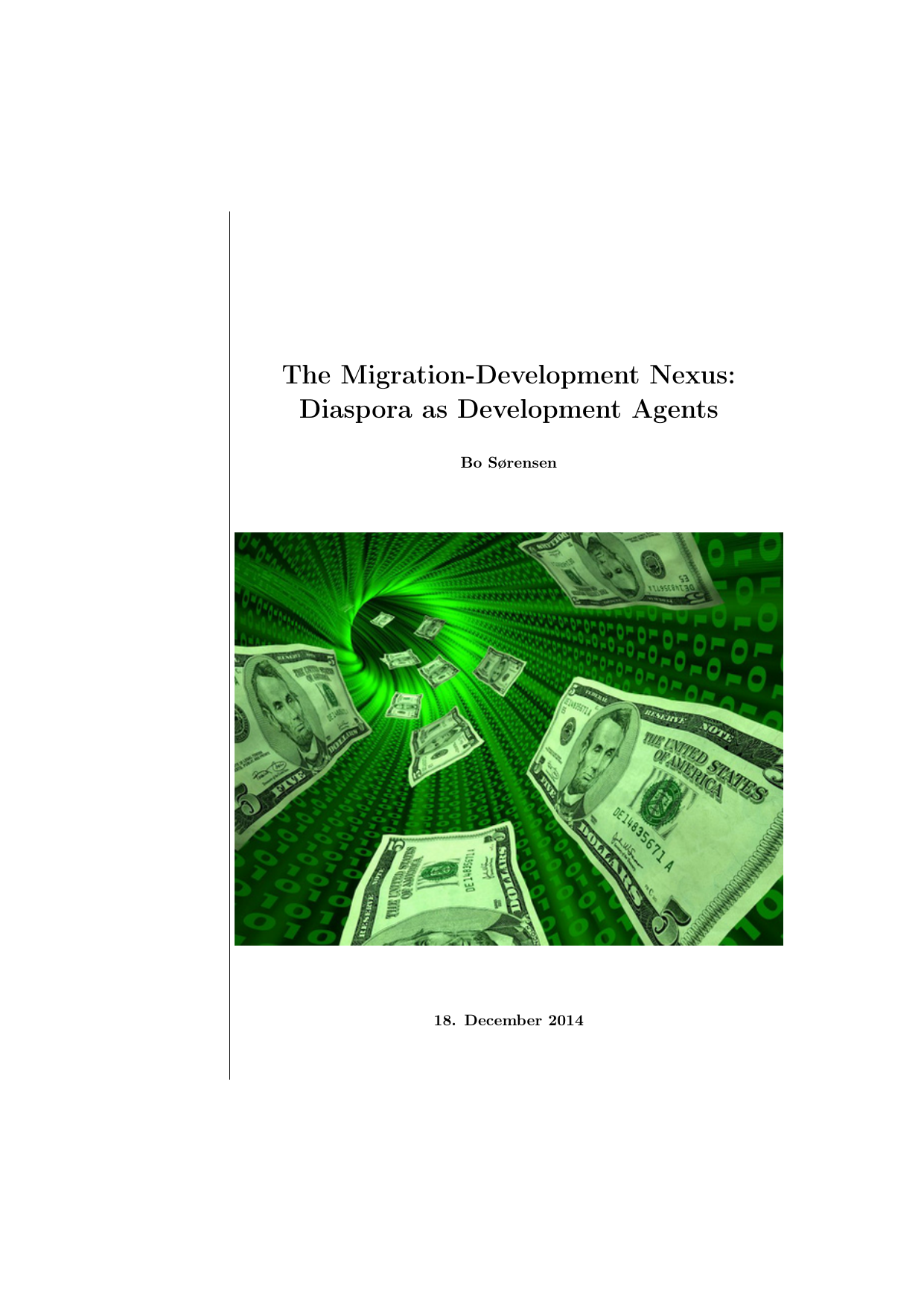
The Migration-Development Nexus: Diaspora as Development Agents
Translated title
Author
Term
4. term
Publication year
2014
Submitted on
2014-12-15
Pages
83
Abstract
Increasing attention is being given among scholars and students to the issue of how diaspora contributions impacts poverty, development, and equity in home countries. However, it is only within recent years that donor government departments, responsible for overseas assistance, and multilateral agencies have started to think diasporas into a development context. They do now have focus on the potential contributions of these groups as a tool to reduce poverty and contribute to economic growth in their countries of origin. Reaching an estimated amount of USD 401 billion in 2012, three times as much as the total official development aid, remittances, sent to developing countries by diasporas, had tripled between 1995 and 2012. Diaspora organizations are often engaged in local areas of their countries of origin and therefore has the potential for creating development in their home country. It is essential to have a good understanding of the diasporas, and the dynamics of their interaction with their countries of origin, as this may influence the nature and scale of their willingness to contribute to the development in their countries of origin. This study uses three countries - Mexico, The Philippines and Cuba - as examples of how governments have perceived their respective diasporas and how these governments have attempted to engage them in the interest of national development. These countries offer three diverse examples, which illustrate a broad range of diaspora engagement policies. This thesis have sought to determine which conditions that are essential for diaspora members, from developing countries, to contribute to the process of development in their home country. First of all, it is necessary that there is some general structural conditions in place before it is possible to create an environment where a positive sustainable development is possible. Acemoglu & Robinson (2012) explains that these structural conditions must be in the form of, what they call, "inclusive" political and economic institutions. Banks & Hulme (2014) explain that without additional inclusive social institutions that allow broader citizen participation, improved economic outcomes are not likely to be joined with improved social outcomes. Sending governments also need to improve policy, legal, and regulatory frameworks. Brinkerhoff (2012) has developed a framework that intend to describe what measures sending governments should take to create an enabling environment for diaspora contribution. Brinkerhoff argues that sending governments needs to have a legal and regulatory framework. Secondly, they need to create government agencies and initiatives to support and connect with their diasporas. Thirdly, offer direct public funding such as investment in diaspora business development as well as financial incentives. Fourthly, enter into government partnerships with diaspora organizations and finally, acknowledge the value of their diasporas.
Keywords
Documents
